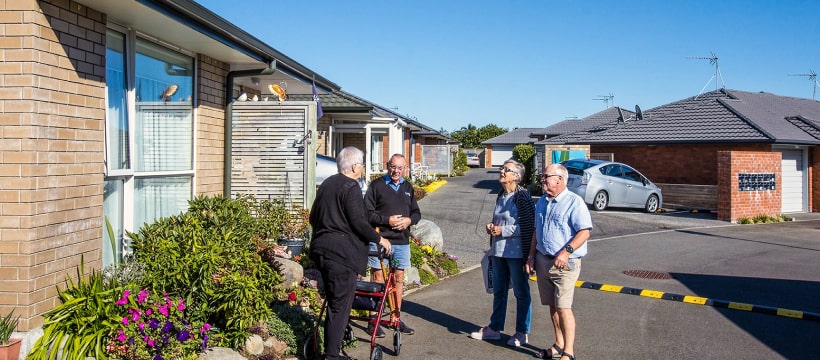How to Get Started
1
2
3
A Safe, Supportive Memory Care Lifestyle with Vintage Gardens
Through our signature Memory Care program, Vintage Gardens, we offer more than just safety — we provide a warm, comforting environment where residents living with Alzheimer’s or other forms of dementia can thrive with daily purpose. Our compassionate, dementia-trained team is available 24/7 to support each individual with dignity, patience, and respect.
Every day with Vintage Gardens follows a familiar rhythm, tailored to individual preferences. Our thoughtful programming includes meaningful engagement, sensory activities, and personalized routines that create calm and reduce anxiety — helping residents feel valued, secure, and truly at home.
Meals are chef-prepared each day and served in a peaceful, structured dining setting to support independence and promote comfort. Gentle cueing and assistance are provided as needed.
Vintage Gardens Services & Amenities
Personalized Dementia Care
Comfort & Engagement
- Private or companion suites
- Complimentary Wi-Fi to stay connected with family
- Daily Vintage Gardens engagement stations and memory-focused activities
- Spa & salon services for relaxation and routine
- Secured outdoor courtyards with garden spaces
- Music, art, and multisensory therapy
- Guided movement sessions suited to individual ability
- Family-friendly lounge areas
- Thoughtfully designed community layout for safe navigation
Peace of mind for your family. Daily purpose for your loved one.

Specialized Memory Support
Our team uses redirection and gentle routines to reduce stress and confusion, while helping with activities of daily living like dressing, bathing, and eating — all in a calm, respectful manner.

Familiar, Safe Social Environments
Residents thrive in structured settings with predictable schedules, familiar spaces, and daily guided social interactions — all designed to reduce isolation and enhance connection.

Purposeful Daily Activities
Vintage Gardens programming includes:
- Music and art therapy
- Guided sensory stimulation
- Pet therapy
- Cognitive games and reminiscence activities Each moment is designed to foster joy, spark memory, and celebrate personal history.

Supportive Dining Experience
We serve meals in a calm, easy-to-navigate environment where staff provide gentle support and cueing — allowing residents to dine with dignity, comfort, and choice.
Frequently asked questions
Memory Care is designed for those living with Alzheimer’s disease, dementia, or other memory
impairments who need a secure, structured setting and 24/7 support from dementia-trained
caregivers. It’s ideal for individuals experiencing confusion, wandering, or a decline in managing
daily tasks.
Pricing varies by location and level of care needed. It typically includes 24/7 care, meals,
engagement programs, and a secured setting. Vintage Gardens™ delivers peace of mind and
personalized support — making it a valuable investment in safety and wellness.
Memory Care includes all the services of Assisted Living, but with added dementia-specific
training, secure environments, and structured routines. Programming is intentionally crafted to
nurture cognitive function and emotional well-being.
Our Vintage Gardens program provides every element of care you or your loved one needs to live an engaging, safe, and fulfilling lifestyle. Our care model includes:
- Dementia-trained caregivers available 24/7
- Personalized care plans and daily support
- Medication reminders and monitoring
- Chef-prepared meals in supportive settings
- Life enrichment and memory-focused programs
- Secured indoor and outdoor areas
- Housekeeping and maintenance
- Regular communication with families
Experience the difference of truly compassionate care
Living options

